A 48-hour protest has been launched along the Teesta River with the slogan "Jago Bahe Teesta Bachai" (Wake Up, Save Teesta), as locals demand their rightful share of the river’s water and the implementation of the Teesta Master Plan.
The protest started at 6 AM on Monday, February 17, 2025, and is taking place in five districts along the river: Lalmonirhat, Kurigram, Rangpur, Nilphamari, and Gaibandha.
The protestors are calling for an end to the unfair water distribution, which they say leaves them vulnerable to floods in the rainy season and drought during the dry months.
People living along the Teesta River face numerous challenges, including losing access to water for irrigation during dry seasons, as India controls the water flow upstream.
Asadul Habib Dulal, the chief coordinator of the Teesta River Protection Committee, shared with reporters,
"Since Monday morning, people from Rangpur have started gathering at the Teesta riverbank. We expect hundreds of thousands to join the protest. The people’s demand for a fair share of the Teesta water and the full implementation of the Teesta Master Plan is something they are determined to fight for. That’s why they are coming together on their own to take part in the protest."
Dulal, who also serves as the organizational secretary of the central BNP and president of Lalmonirhat district BNP, continued,
"We will keep up this 48-hour sit-in. We’ve organized cultural events like palagan, sarigan, bhawaiya songs, Lalon songs, and even rural games such as ha-du-du, kite flying, and running races."
He added, "If the government ignores our demands after these 48 hours, we’ll have no choice but to plan more protests."
Residents of the Teesta River area explained the struggles they face.
During the rainy season, they are affected by severe flooding caused by the release of water from upstream India.
In the dry season, however, India unilaterally cuts off the river’s water, leaving them without irrigation.
As a result, the river dries up, and many who rely on it for farming, fishing, or boating find themselves without work.
The situation is further complicated by the lack of dredging in the Teesta River, which causes erosion and displaces thousands of families every year.
People living in these communities believe that if they are given their fair share of the river’s water and the Teesta Master Plan is put into action, the river could bring prosperity to the region instead of hardship.
Noor Islam, a 65-year-old farmer from Char Gokunda in Lalmonirhat Sadar, explained,
"I’ve been here since Monday morning, joining the protest. Tents have been set up for us to stay overnight."
Amitabh Chowdhury, an executive engineer at the Dalia Water Development Board, shed light on the technical side of the issue, saying,
"The Teesta River in Bangladesh spans 115 kilometers. Of this, 20 kilometers are upstream of the Teesta Barrage, and 95 kilometers are downstream. The river downstream has dried up due to a lack of water."
Chowdhury also mentioned,
"At the Teesta Barrage, we’re receiving an average of 2,800 cusecs of water, which is used to irrigate Boro paddy fields in six districts. If we were getting the agreed-upon water share, the river downstream would still have water flowing during the dry season."
The people of the Teesta River region hope that the government will listen to their demands and that their struggle for a fair water share will result in a better future for their communities.


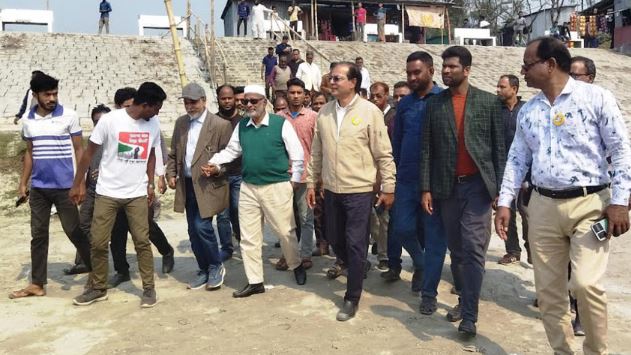


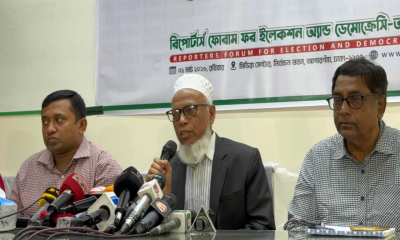
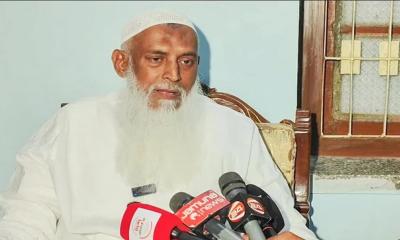
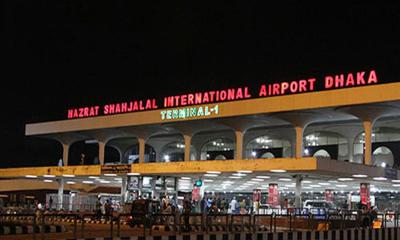







-20260301064029.webp)

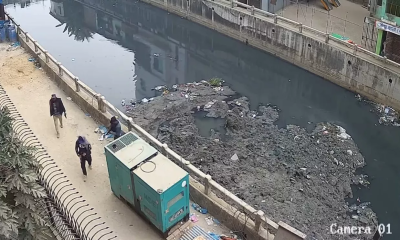

-20260228080513.webp)





-20260224075258.webp)






-20260225072312.webp)
